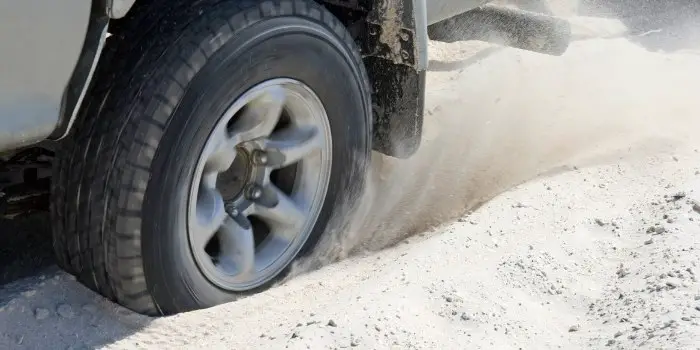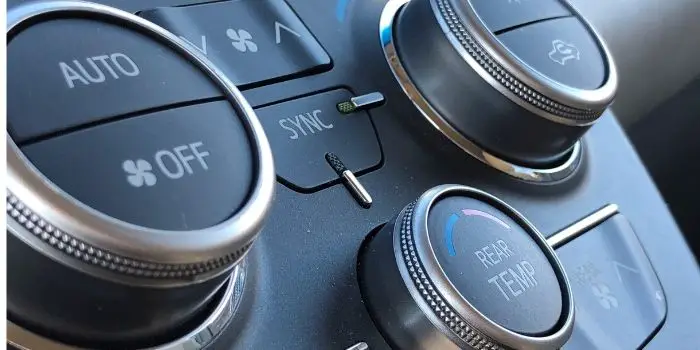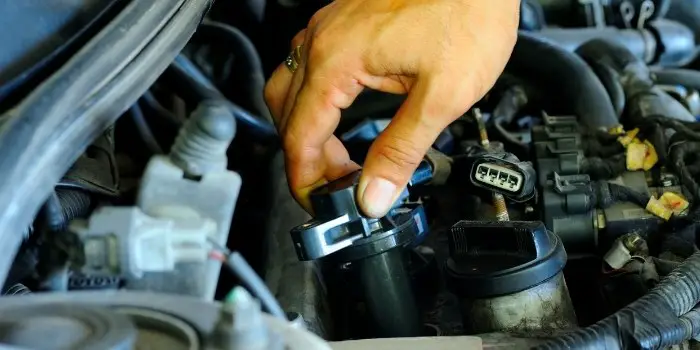
When you’re driving on the freeway, and you pass 60 mph, your car starts to shake. You may have wondered why that happens and what you can do about it.
In this blog post, we’ll tell you what causes your car to shake at high speeds and some possible solutions. Keep reading to learn more!
Table of Contents
10 Reasons Why Your Car Vibrates
There are many reasons why your car might vibrate. Here are some common causes of car vibration.
1. Brake Trouble
If you’re driving down the highway and notice your car starting to shake, it could be a sign of brake trouble.
When brakes are worn out, they can’t grip the rotors as tightly, which can cause the rotors to warp.
Warped rotors can cause a shaking sensation in the steering wheel or brake pedal, especially when driving at higher speeds.
Driving with worn brakes can not only be dangerous, but it can also damage your rotors, which can be expensive to repair.
2. Tire Issues
Another issue that can cause your car to shake is a problem with your tires.
If your tires are unbalanced, it can cause them to vibrate. This can be caused by uneven tread wear or a heavy spot on the tire.
If you hit a pothole and your car starts shaking, it’s likely that you’ve damaged your tire or wheels.
If you’re driving and your car starts shaking, pull over as soon as possible and inspect the tires and wheels for any damage.
If you find any damage, replace the damaged tire or wheel before continuing your journey.
3. Out-of-balance
Out-of-balance tires can cause a car to shake, particularly at high speeds.
When a tire is out of balance, it means that the weight around the circumference of the tire is not evenly distributed.
This can cause the tire to vibrate as it spins, and the vibration will become more pronounced as the speed increases.
In addition to causing a shaking sensation, out-of-balance tires can also cause premature wear and tear on the suspension and steering components.
4. Wheel Alignment Issues
When a car hits a bump or pothole, the force of the impact can cause the wheel to become misaligned.
Over time, this can lead to vibrations and shaking, especially at high speeds.
The problem is compounded by the fact that most drivers don’t realize their wheel is out of alignment until the damage is already done.
By keeping your wheels in alignment, you can help reduce vibrations and improve the overall performance of your vehicle.
5. Bent or Damaged Wheels
When a car is driven at high speeds, the wheels experience a lot of force. If the wheels are not in good condition, they can start to shake.
The force of the wind can cause the wheels to bend, and hitting a pothole can damage the wheel.
If you are having trouble with your car shaking, it is important to have the wheels inspected by a mechanic.

6. Engine Misfire
When a car engine misfires, it means that one or more of the cylinders is not firing correctly.
This can cause the engine to shake, as well as to lose power and efficiency.
There are several potential causes of engine misfires, including spark plug problems, fuel injector issues, and compression problems.
Most engine misfires can be fixed relatively easily, but if the problem is not addressed, it can lead to more serious engine damage.
When troubleshooting an engine misfire, it is important to rule out all potential causes before making a repair.
7. Transmission Problems
Transmission problems can be a common cause of this type of shaking, as the transmission is responsible for transferring power from the engine to the wheels.
When there are issues with the transmission, this process can be disrupted, causing the car to shake.
There are a number of potential causes of transmission problems, including worn-out parts, low fluid levels, or leaks.
8. Clutch Slippage in Manual Transmission Vehicles
Clutch slippage is when the clutch pedal is depressed, but the engine speed does not decrease.
In a manual transmission car, this can cause the car to shake when driving at high speeds.
The reason for this is that when the clutch pedal is depressed, it disconnects the engine from the wheels.
This makes it hard for the engine to rotate the wheels, and as a result, the car will shake.
9. Loose Suspension Components
One issue that can be particularly dangerous is loose suspension components.
If your suspension is not in good condition, it can cause your car to shake and vibrate at high speeds.
This can make it difficult to control your car and can even lead to an accident.
Therefore, it’s important to make sure that your suspension is in good condition before driving on the highway.
10. Exhaust System Problems
If your car starts shaking above 60 mph, it could be a sign of exhaust system problems.
The exhaust system includes the muffler, catalytic converter, and other parts that help to reduce noise and emissions.
Over time, these parts can become clogged or damaged, causing the engine to run less efficiently. As a result, the car may shake or vibrate at higher speeds.
Left unchecked, exhaust system problems can lead to decreased fuel economy and increased emissions.
In extreme cases, damage to the catalytic converter can cause fires or explosions.
Therefore, it’s important to be aware of the signs of exhaust system problems and to have them repaired as soon as possible.
The Conclusion
If your car starts shaking or vibrating at high speeds, it could be a sign of a serious problem.
There are a number of potential causes, including transmission problems, loose suspension components, and exhaust system issues.
It’s important to have your car checked out by a mechanic as soon as possible to diagnose and fix the problem.

Based in Orem (Utah) John Paterson graduated from Utah Valley University and has begun writing in 2009. He has a large wealth of experience in writing articles related to cars, automotive repair, wheels, cleaning/maintenance, and much more. He has also written instructional articles in a similar niche for a few online publications as well. Currently, he works as a mechanic in his personal garage shop where he loves serving his countrymen from his heart.




